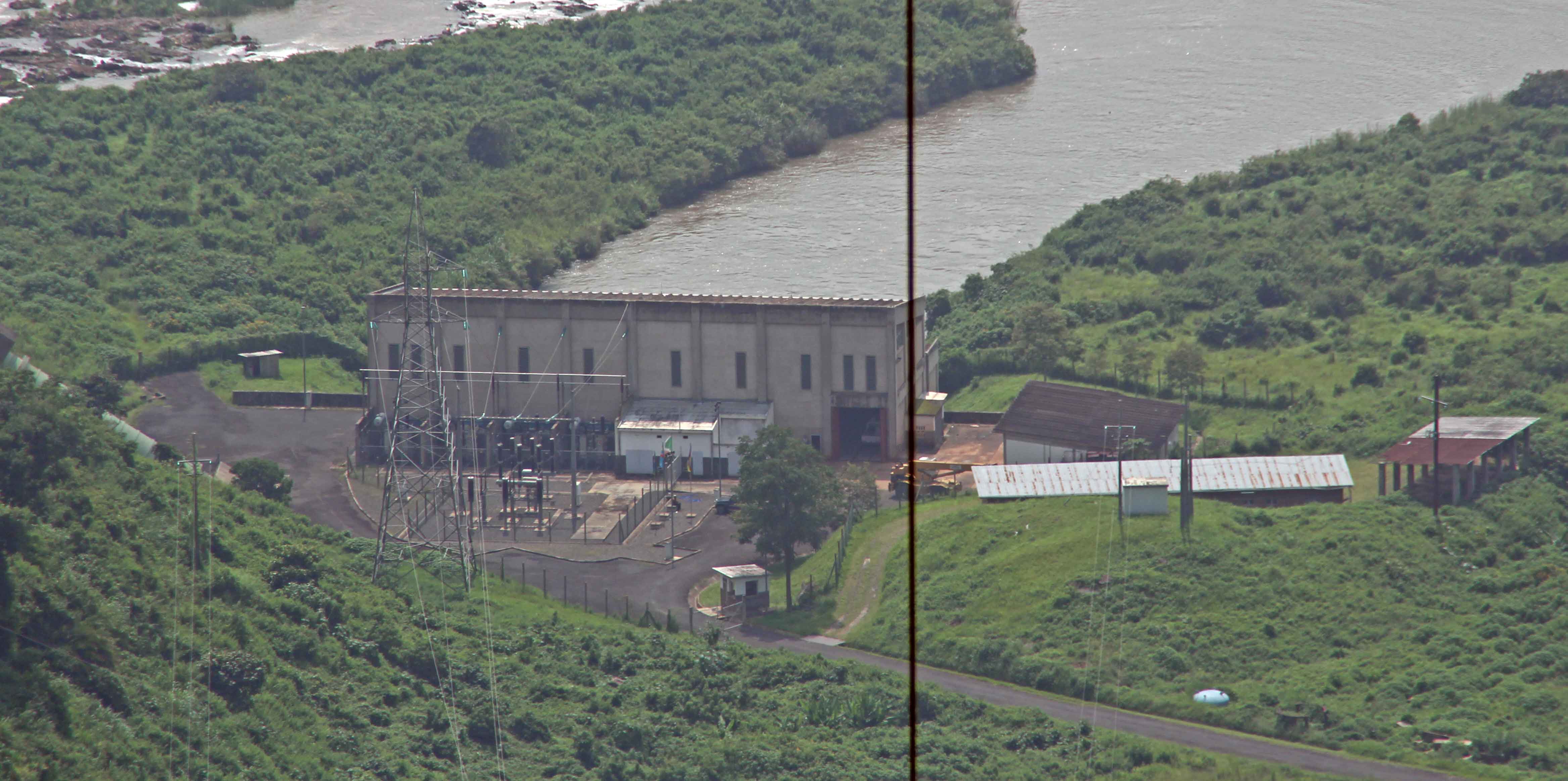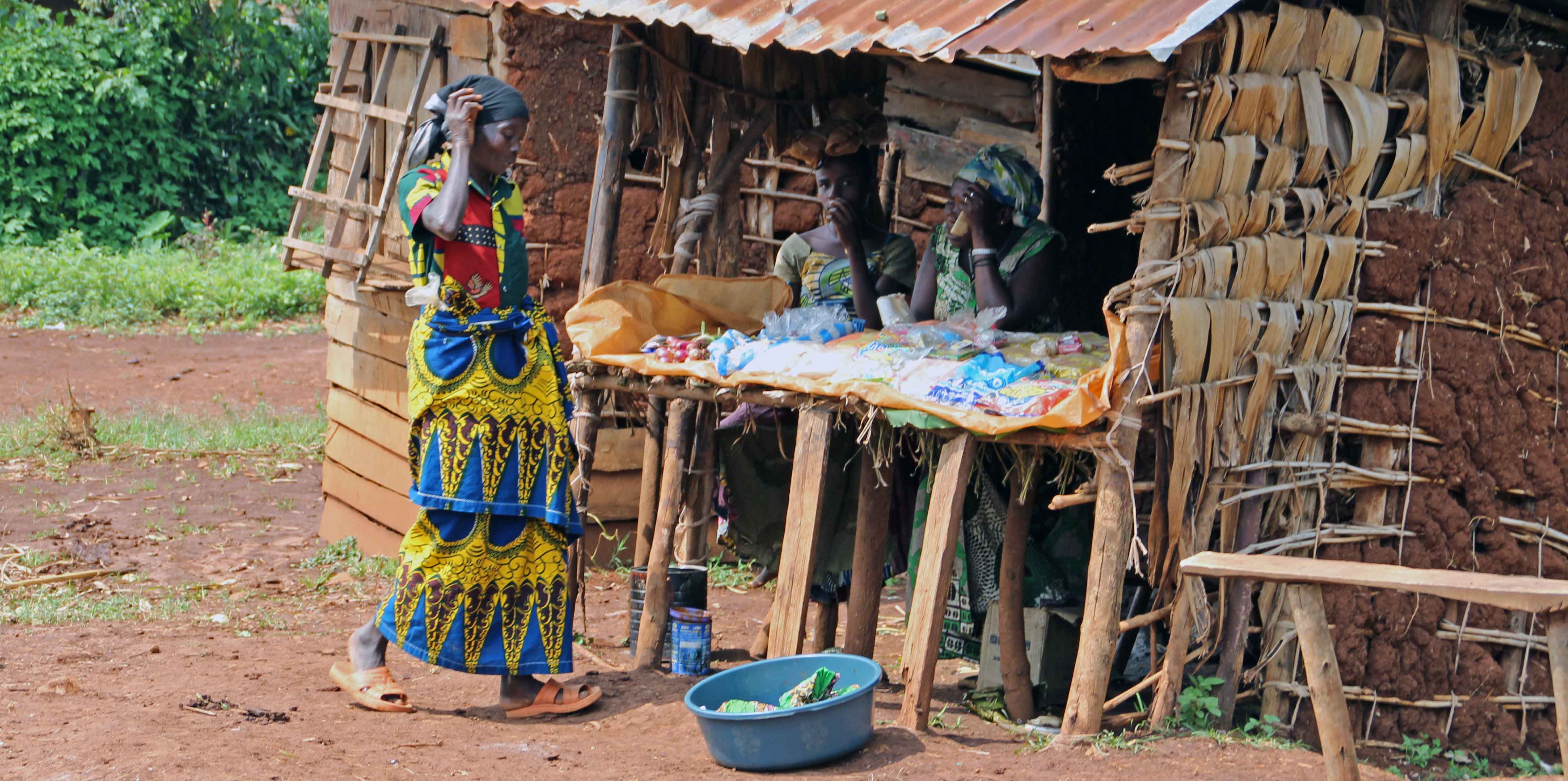Mumosho is a groupement of 27 villages and scattered farmsteads that is home to about 50,000 people. The centre is located near the border with Rwanda in the foothills above the Rusizi River, 25 kilometres south of Bukavu.
This video gives an idea of life in the area:
Getting to Mumosho from Bukavu takes an hour and a half on a rough dirt road that passes through the shanty suburbs of Essence and Panzi eventually out into hills and forests that provide a scenic backdrop to what is now a peaceful community.
The recent history is anything but peaceful. During the 1994 genocide in Rwanda, Tutsi survivors crossed the border and came to Mumosho in search of safety. When the genocide ended the Tutsi refugees were replaced by Hutu refugees, some of whom perpetrated the slaughter in Rwanda. The schools and churches were used to house the refugees and much of the local forest was cut down for fuel.
In 1996 at the outbreak of the first Congo war, the allies of Laurent Kabila used Mumosho as a gateway from Rwanda into Congo and the Hutu refugees fled into the hills from where they launched attacks on the villages. The Congolese army engaged the former allies of Laurent Kabila in the Mumosho area and many local people died in the fighting, notably in front of the church where people where shot by soldiers.
In 1998 the Congolese Coalition for Democracy forces, backed by Rwanda, again crossed the border around Mumosho and the area once again became a battlefield.
The subsequent fighting in many other parts of South Kivu did not directly affect Mumosho although the road to Bukuva was for many years unsafe, especially for women who were subjected to rape by soldiers.

The people have also had to deal with the affects of a hydroelectric power station on the Rusizi River. It was built back in 1982 as a joint project between Rwanda, Burundi and DRC. However the buildings were built mostly on the Congolese side of the river using land sequestered at a low price from local people. The land was flat and good for farming and its loss continues to create bad feeling amongst the people who struggle to survive from steep hillside plots of land. Another tract of local land has been acquired by a German pharmacy company, which has left very little land for community use. Protests continue to this day, sometimes resulting in police intervention.

Land shortages mean that some families and especially the kids are malnourished. Instead of living off the land many people have to run a small business such as making doughnuts or charcoal or they walk into the hills to mine for minerals. It’s difficult to survive but at least the road to Bukavu is now safe and it’s feasible for traders to walk there and back in a day and bring goods to sell in the villages.
Despite the history of war and the continuing poverty, Mumosho is a friendly and welcoming community. This is because of the mix of people from different tribes and busy trading environment as people try to make something of their lives. We work here with several women’s groups to help them start larger businesses such as a cantine, pharmacy and brick making factory, all of which are making a positive contribution to daily life.